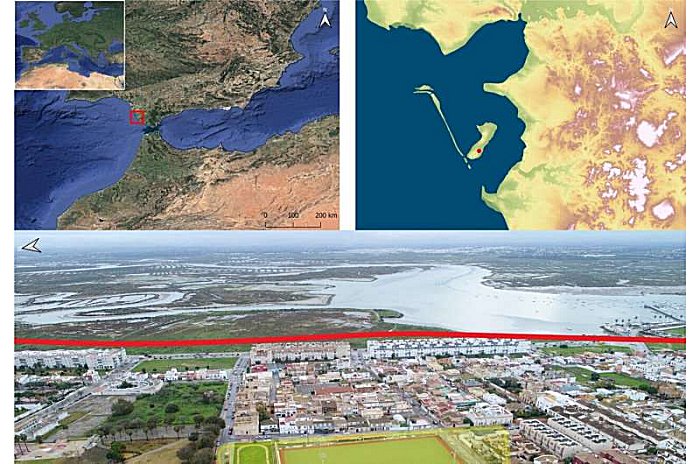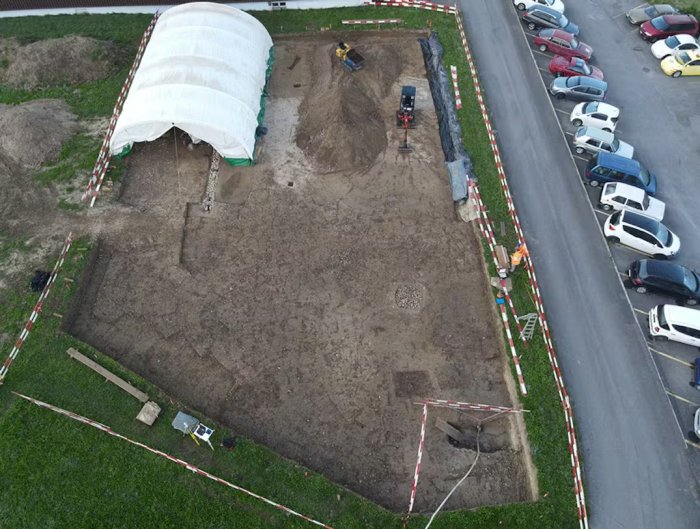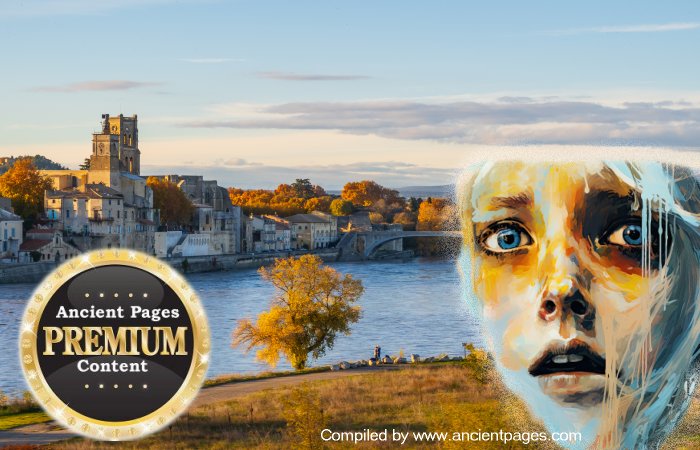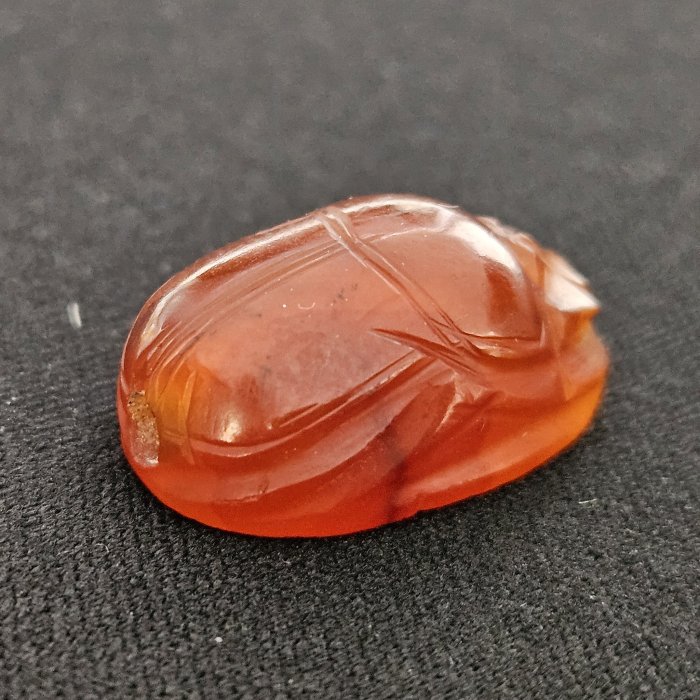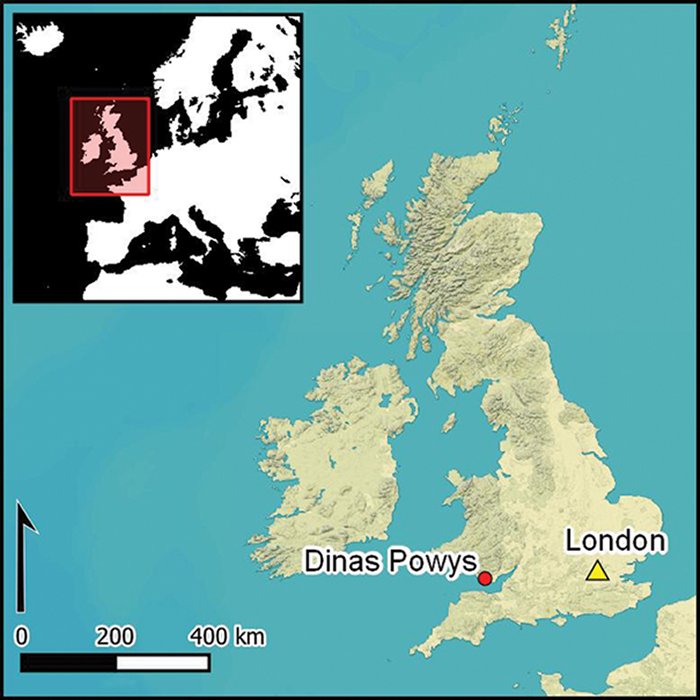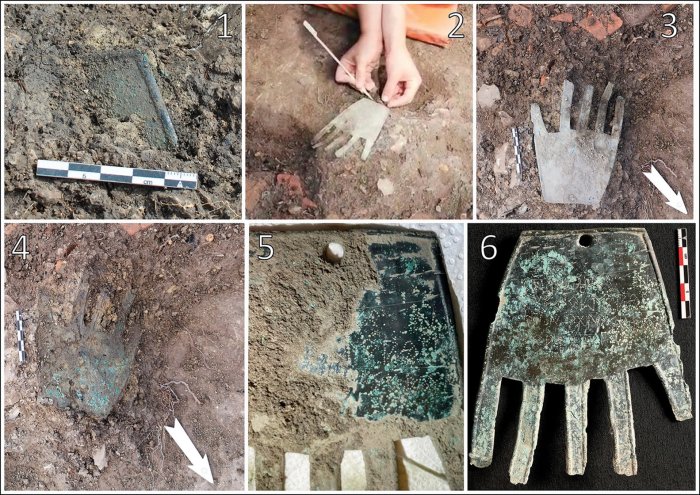Jan Bartek – AncientPages.com – Archaeologists are investigating a rather peculiar Medieval cemetery located in a field not far from Fonmon Castle in Wales, UK. The fortified Medieval castle was built by Oliver St John of Fonmon, one of the Twelve Knights of Glamorgan who effected the Norman conquest of Glamorgan. The examined cemetery is thought to date to the 6th or 7th Century, and 18 of the estimated 70 graves have been excavated so far.
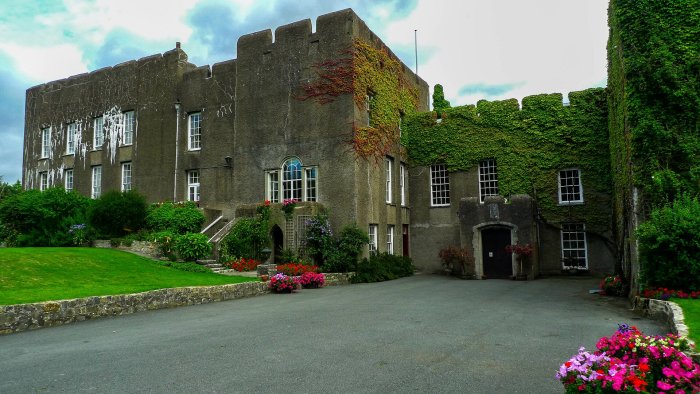
Fonmon Castle, Wales. Credit: Stewart Black – CC BY 2.0
Despite being around 1,500 years old, several of the unearthed skeletons are still in good condition, but while investigating the site, scientists stumbled upon curiosities that raise a number of questions.
People Buried In Positions
For one thing, some of the skeletons are lying in unusual positions. Researchers have carefully removed the thin layer of topsoil to expose the graves that were carved into the bedrock so long ago, and during the process, unexpected artifacts have emerged from the site.
According to Summer Courts, an osteoarchaeologist from the University of Reading, the human remains shed light on the ancient community that once lived here and how people worked.
“We have some teeth that are very worn in a kind of a funny way that might indicate the use of teeth as tools.
Maybe for textile work, leather work or basketry – they’re pulling something through their front teeth,” Courts told the BBC.
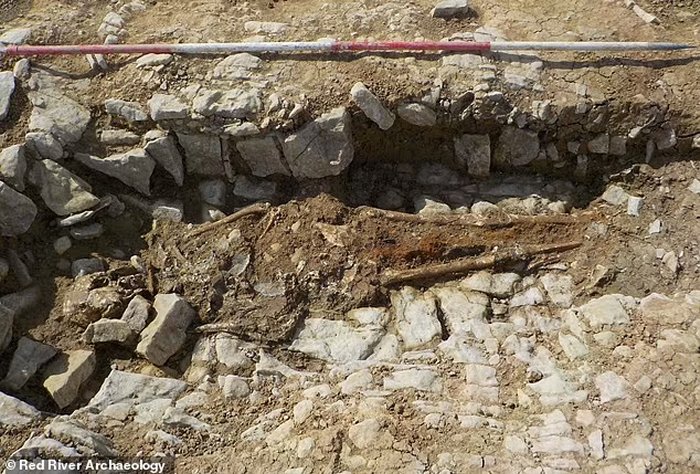
Skeletons from this period are usually found lying on their backs as shown here, but in this cemetery some have been placed on their sides. Credit: Red River Archaeology
Some are flat on their backs, normal for the period, while others are placed on their sides, and a few are buried in a crouching position with their knees tucked up against their chest.
As reported by the BBC, “the items being found around the graves are also surprising and they show how life in the middle of the first millennium was very different from now.
Fragments of dishes and cups have been found, and splinters of animal bone that have been butchered and burnt. One item really brings this community to life: a tiny carved peg that may have been used as a marker for scoring in a game, perhaps something like we use in a cribbage board.”
Dr. Andy Seaman, a specialist in early medieval archaeology from the University of Cardiff who is leading the digging team, says it is important to remember these cemeteries were much more than places where the ᴅᴇᴀᴅ were buried. Cemeteries played an important role in the community.
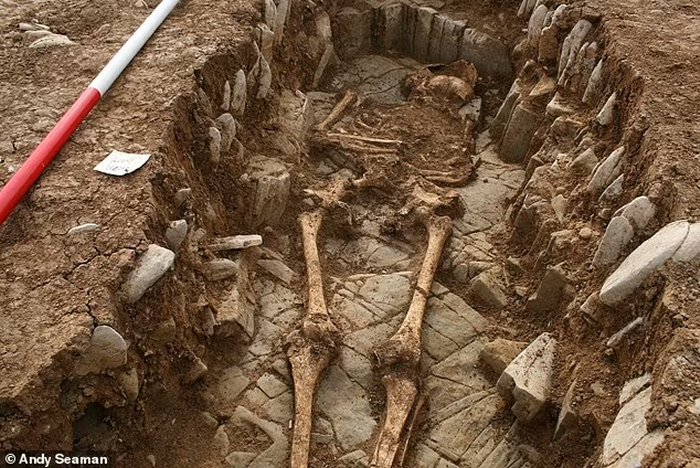
Four of the 18 skeletons excavated so far have even been found crouching, which is extremely unusual. Credit: Andy Seaman
“We tend to think of graveyards as sort of enclosed spaces that we don’t really go to, but they probably would have been quite central to life in the past,” he explained.
And it’s not just a place for people being buried, but it’s a place where communities are coming together: they are burying their ᴅᴇᴀᴅ, but they’re also undertaking other forms of activity and social practice, including eating and drinking – and feasting,” Dr. Seaman says.
Unusual Artifacts
The research team was surprised to find so many unusual artifacts offering evidence that people who lived here were by no means ordinary. On one of the graves was a piece of glᴀss.
“It’s a rim shard, an ice-cream shaped cone vessel – very fine material, very fine glᴀss… it’s a really nice find,” Andy Seaman says as he admires the fragment.
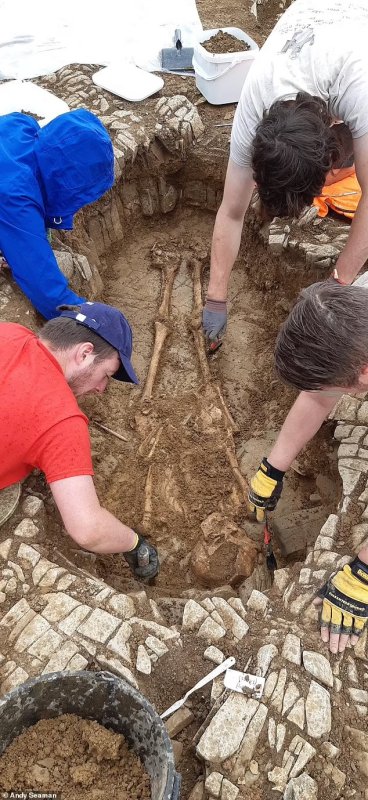
There is currently no explanation for why some people were singled out for unusual burial rites but the team is looking for more evidence. Credit: Andy Seaman.
He thinks it’s from the Bordeaux region in France – and it’s not the only imported item. The team has also found pieces of pottery, possibly from North Africa.
The quality of these finds suggests that the people there were of a high status.
“The evidence we’ve got here is that the people have access to very high quality imported goods, that you can only get through trading or exchange networks, with people with a lot of wealth, to bring it here.
See also: More Archaeology News
“What exactly is going on? Who are these people being buried here?” Tudur Davies, from the University of Cardiff, says.
To learn more about the medieval cemetery and people buried here, scientists will conduct a DNA analysis.
Written by Jan Bartek – AncientPages.com Staff Writer
